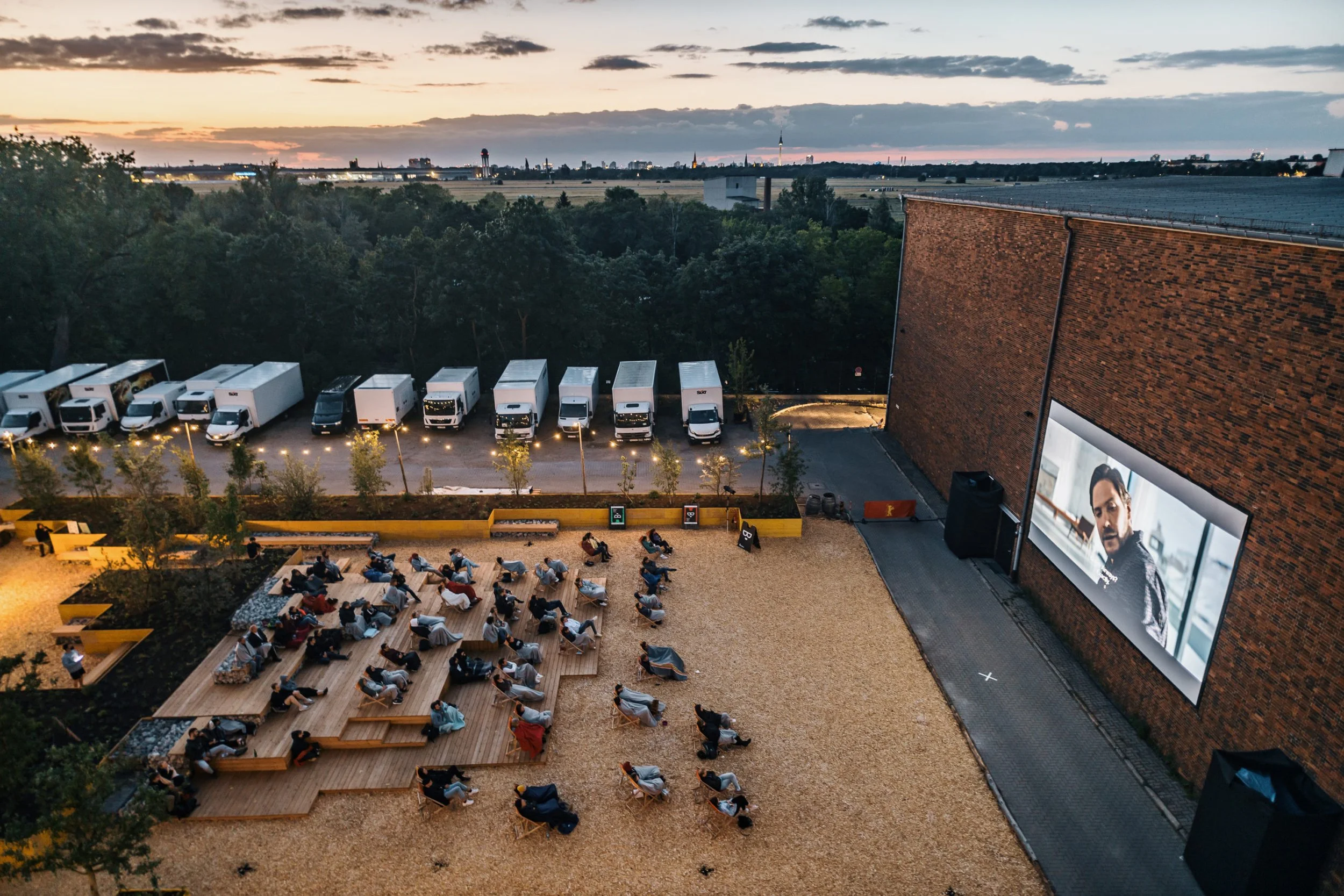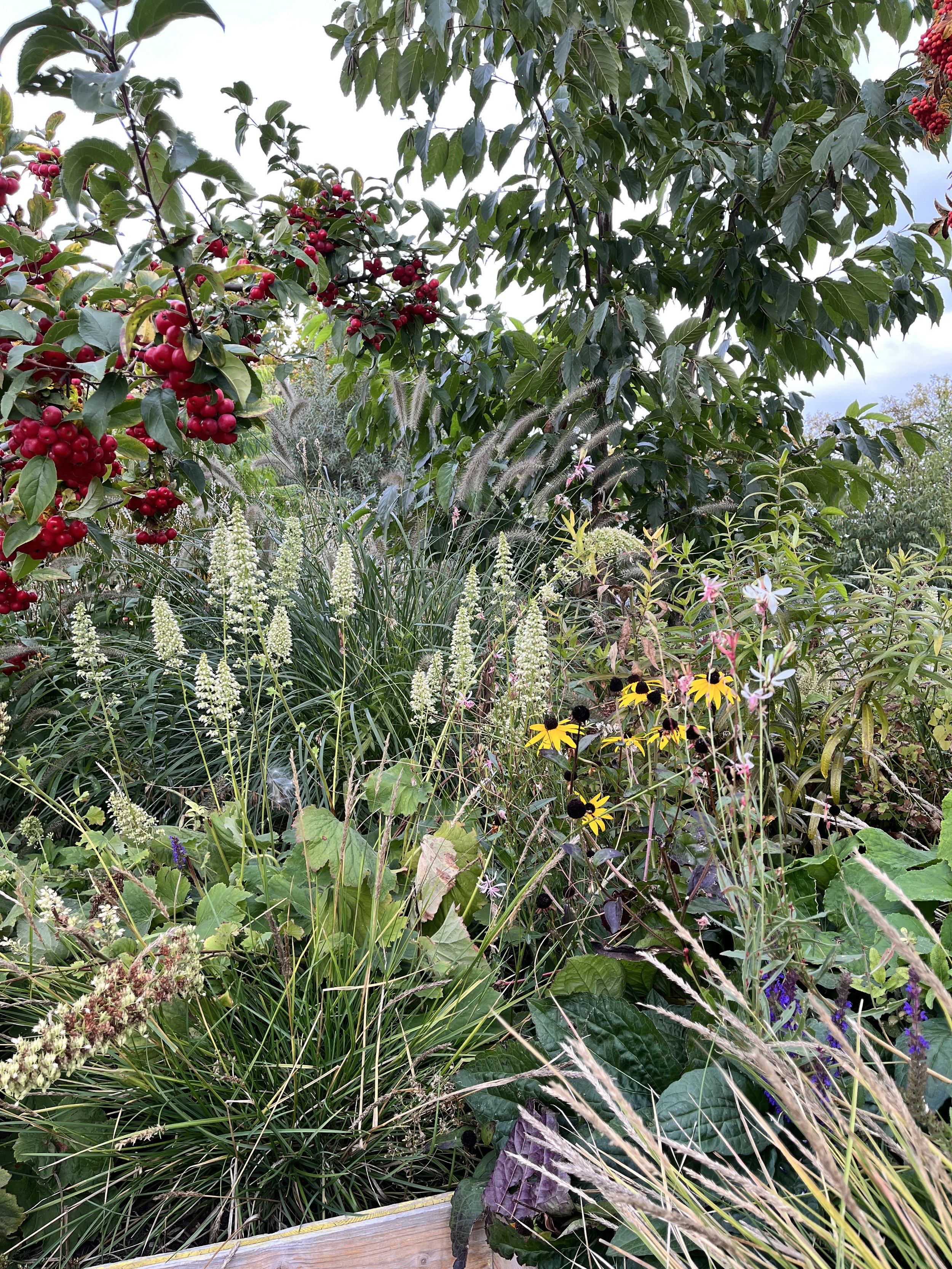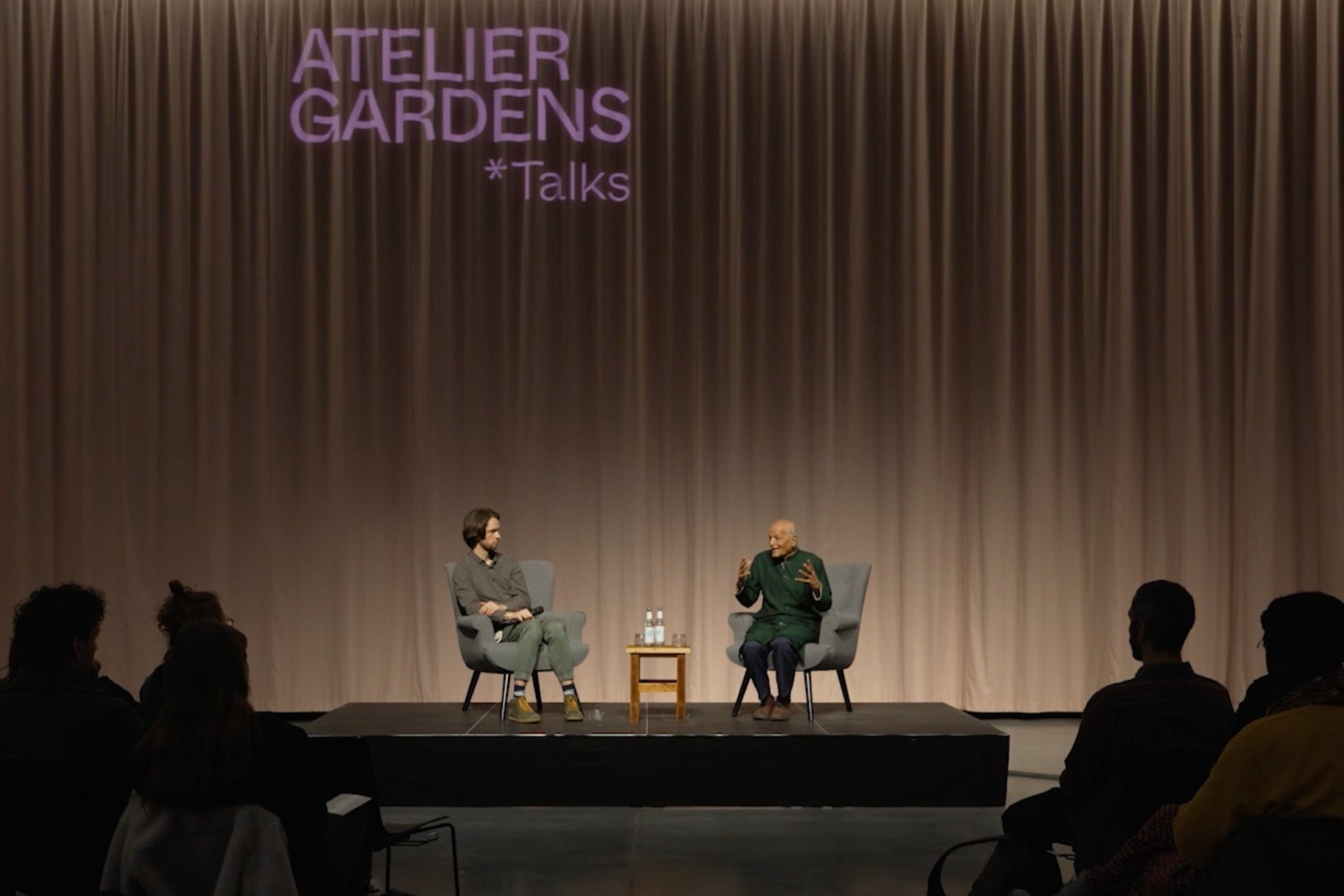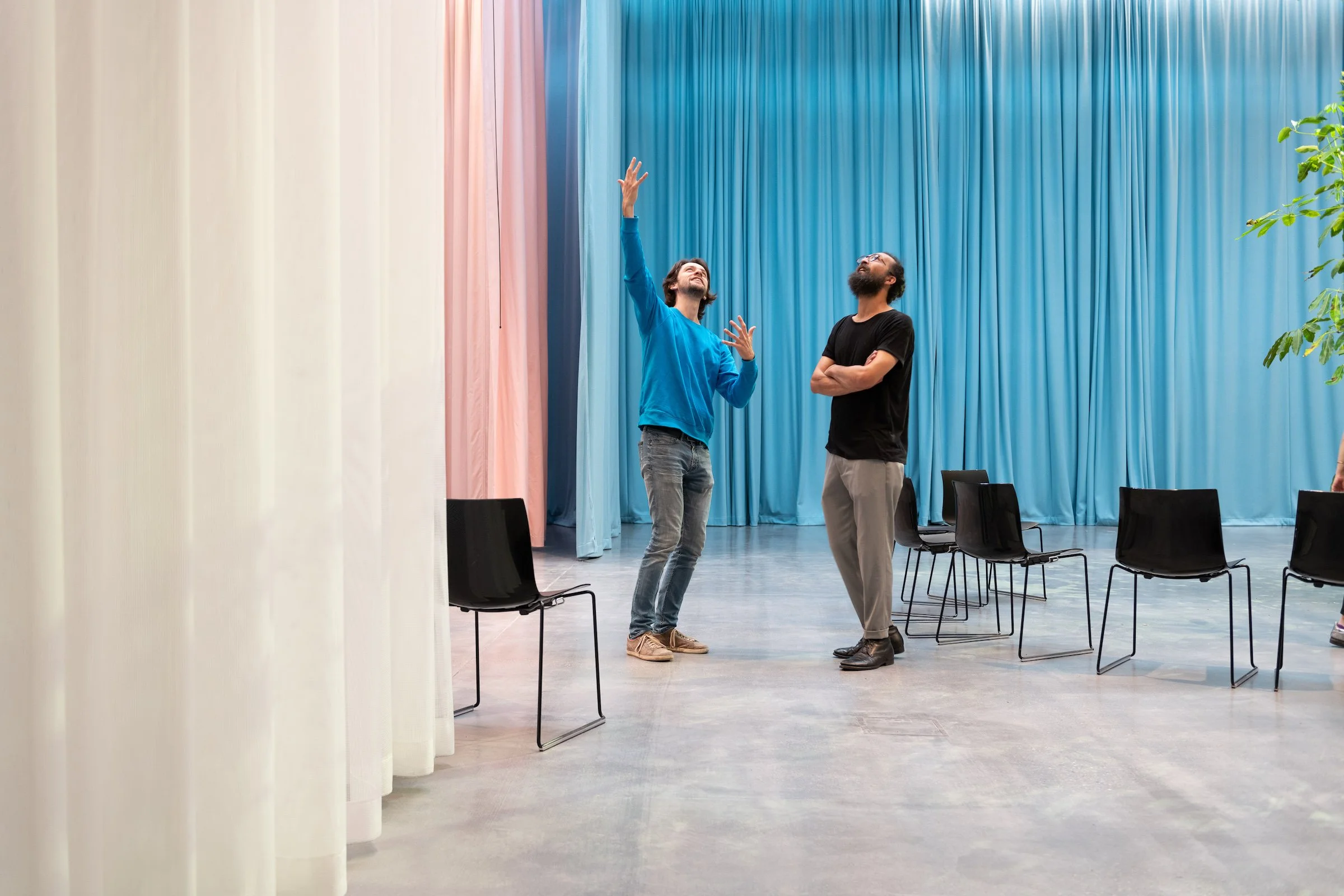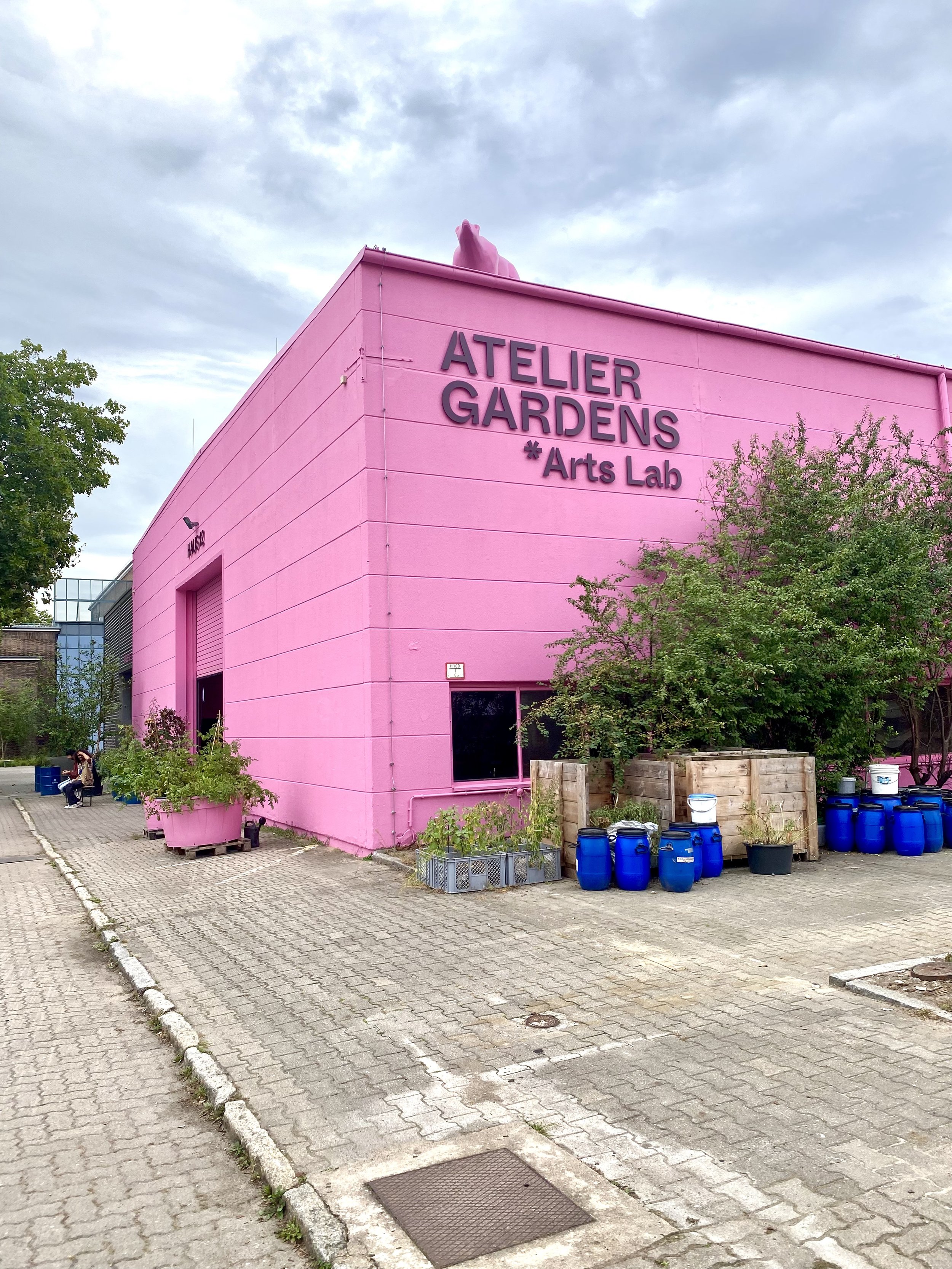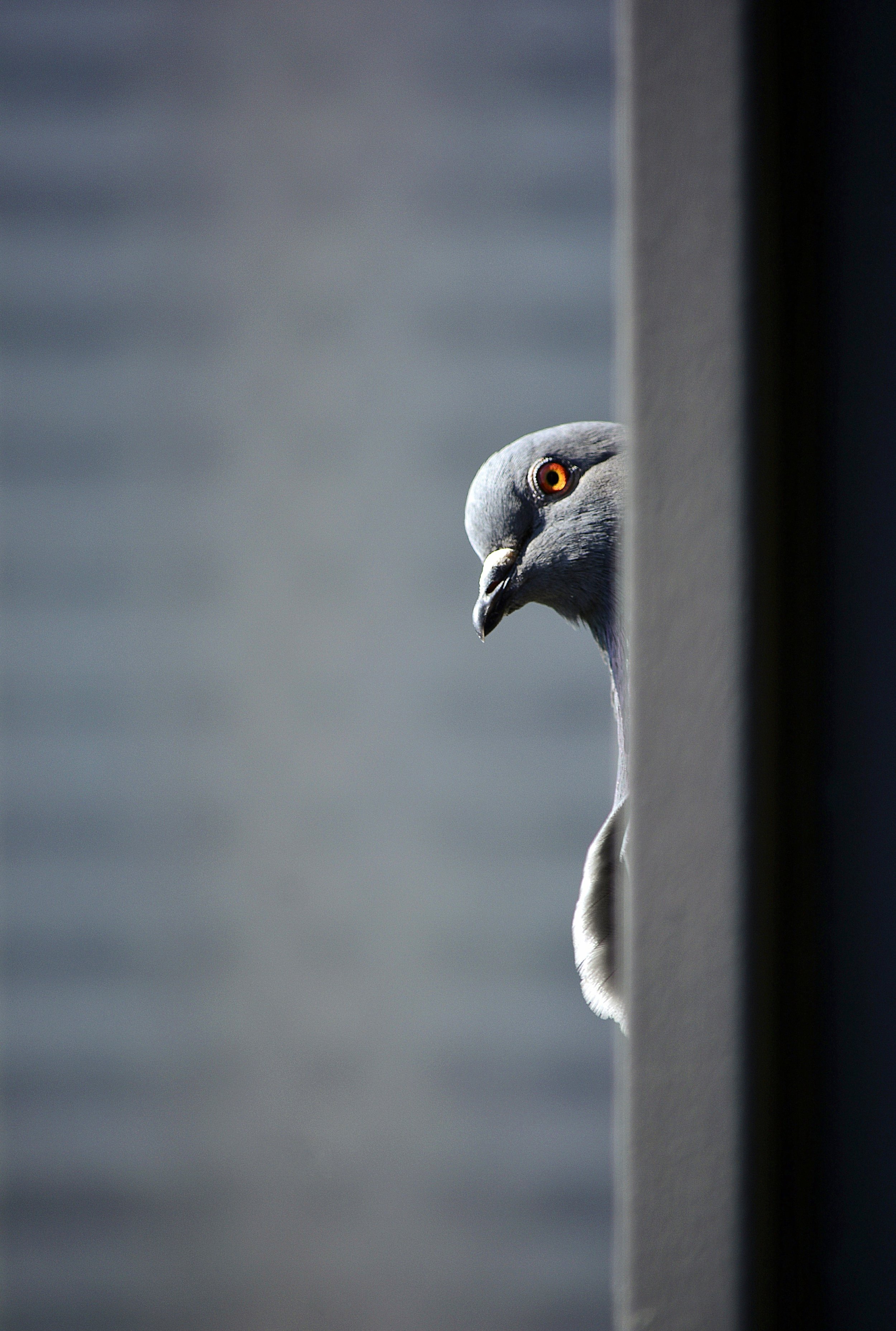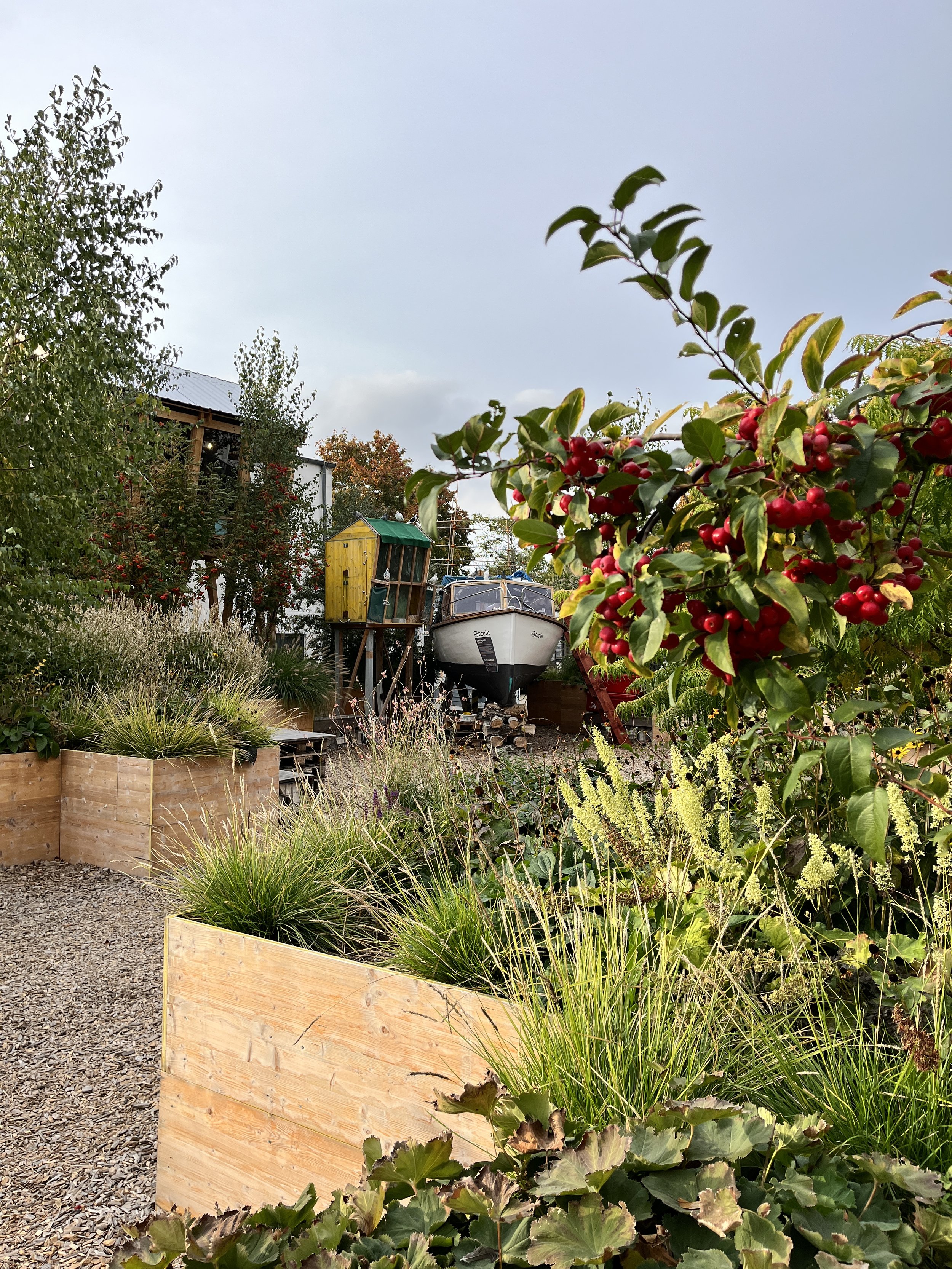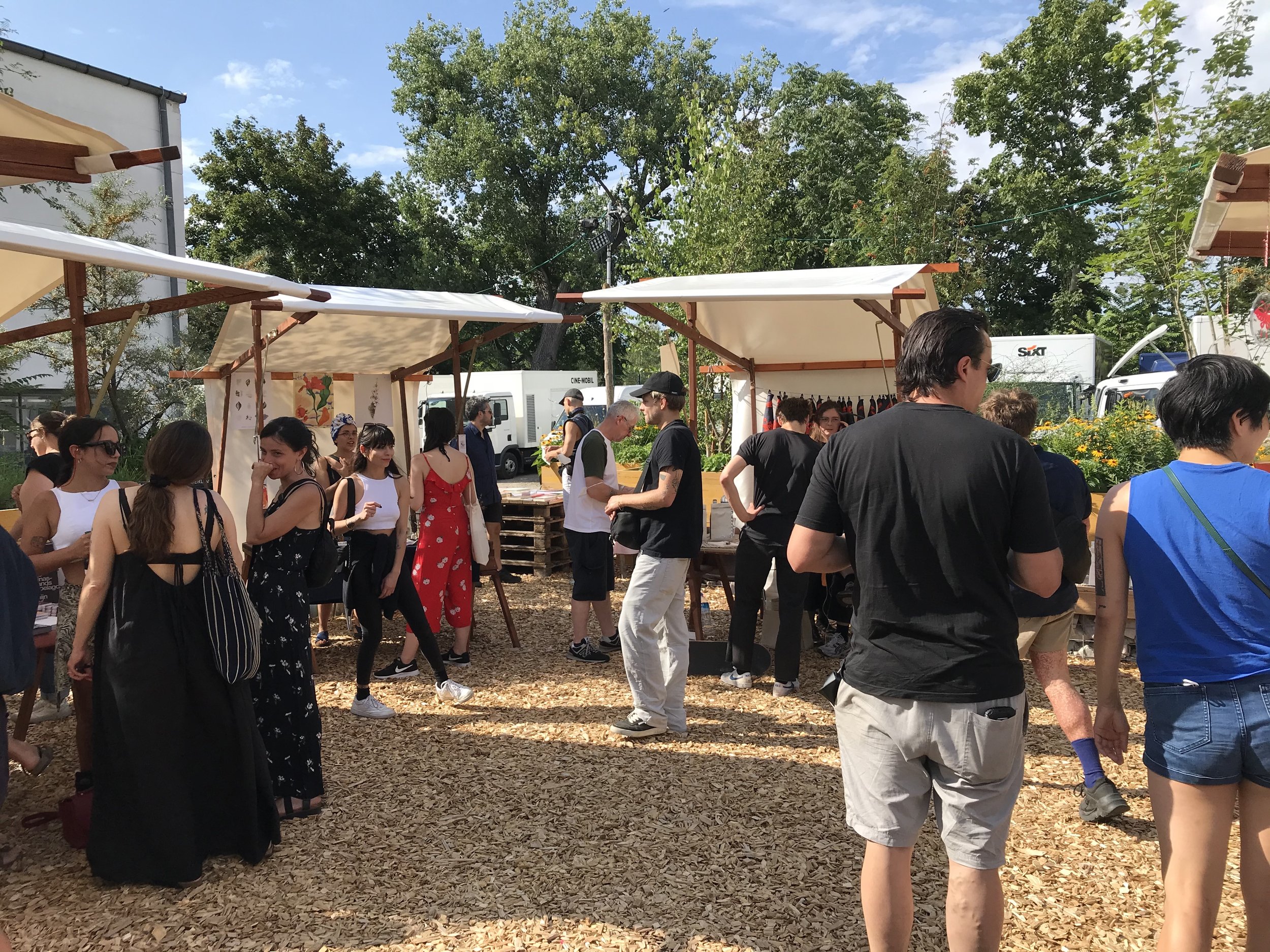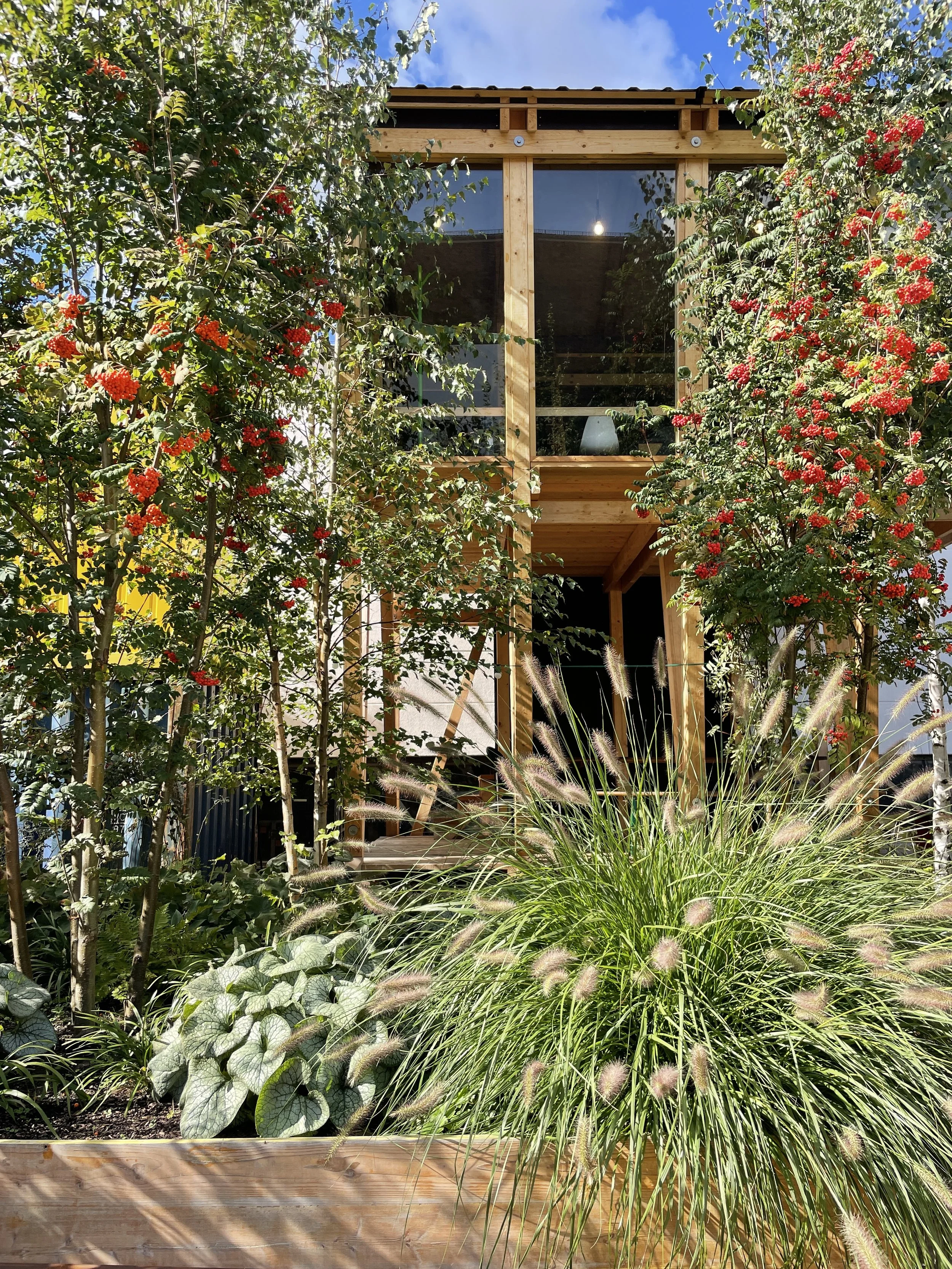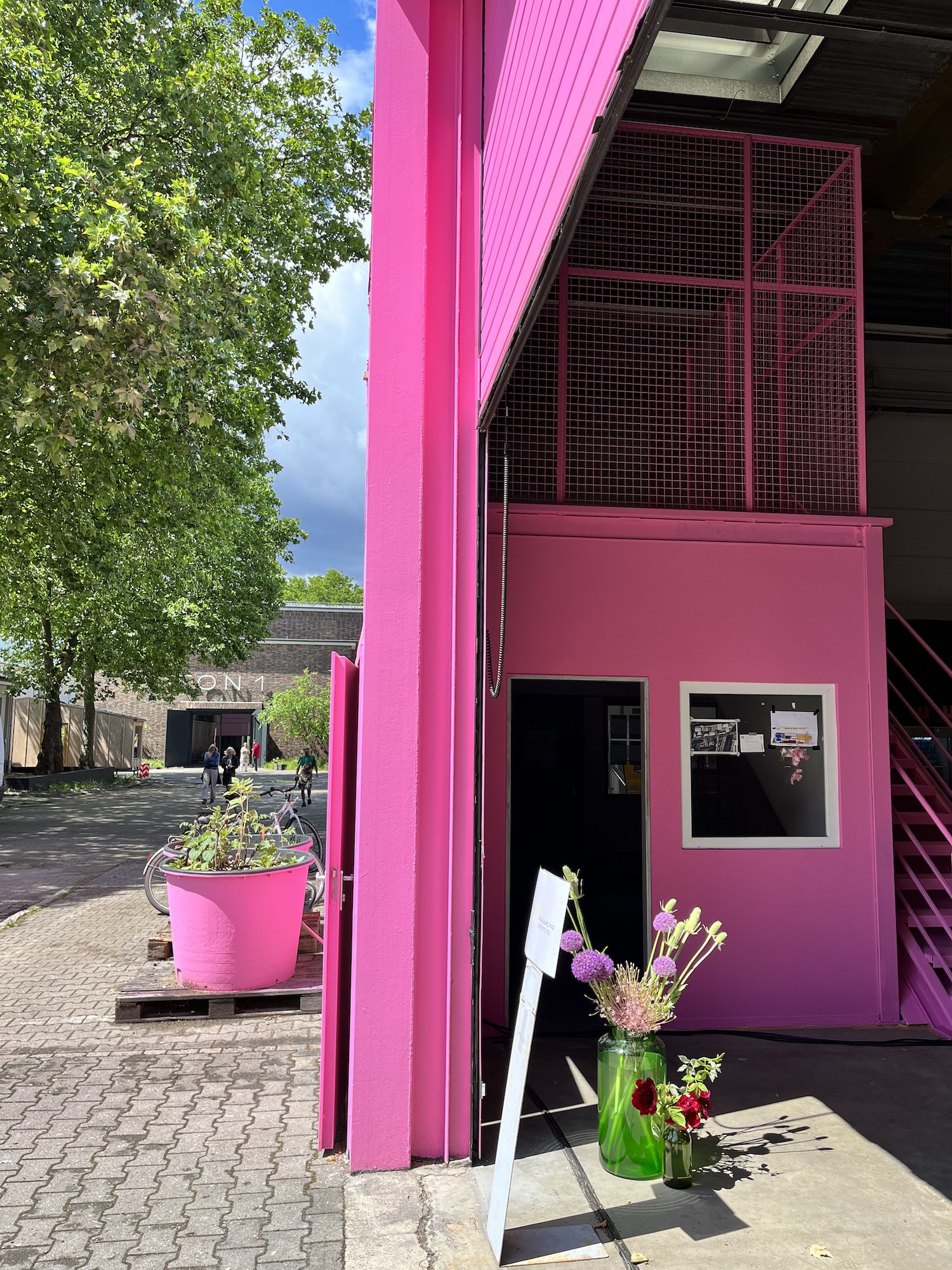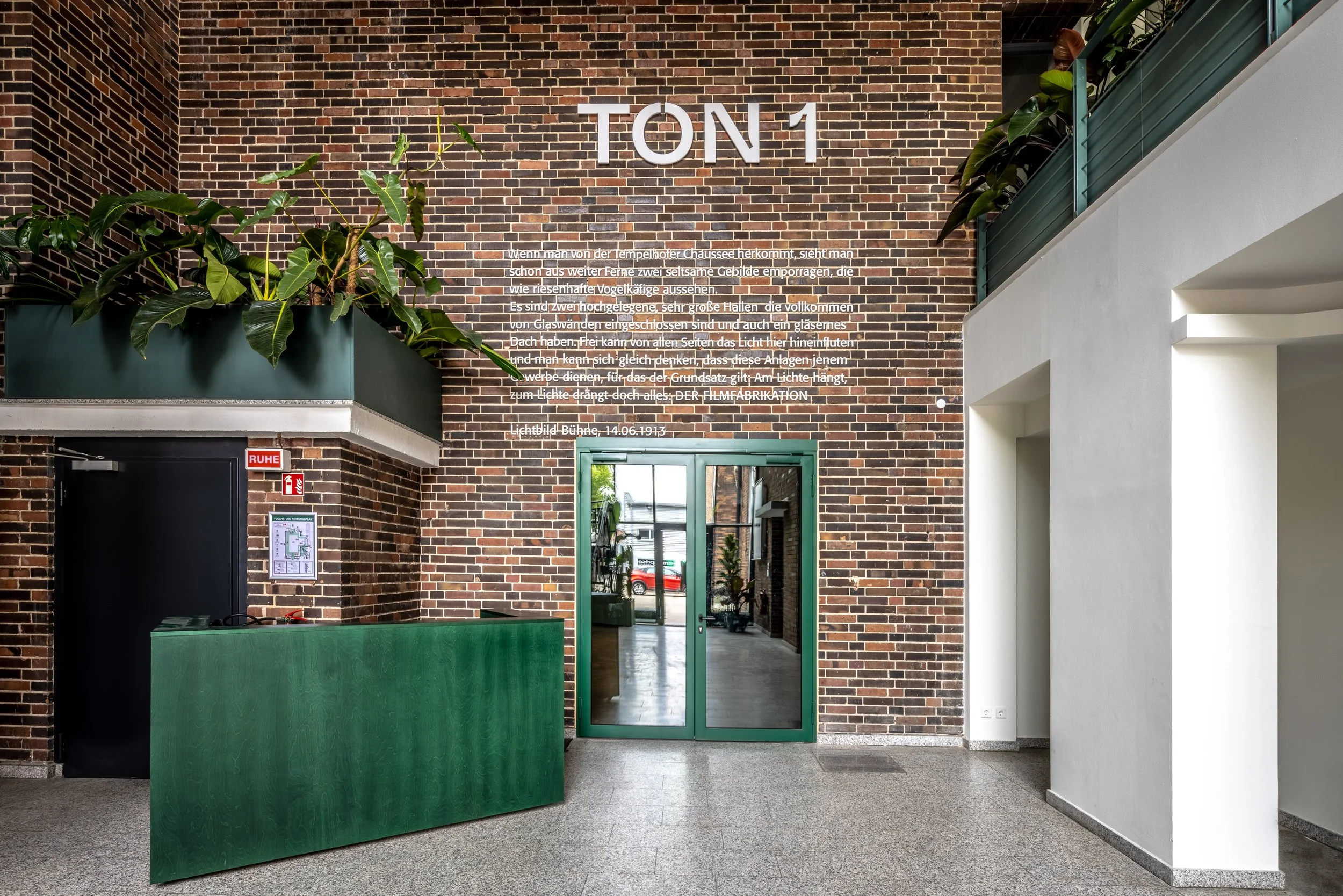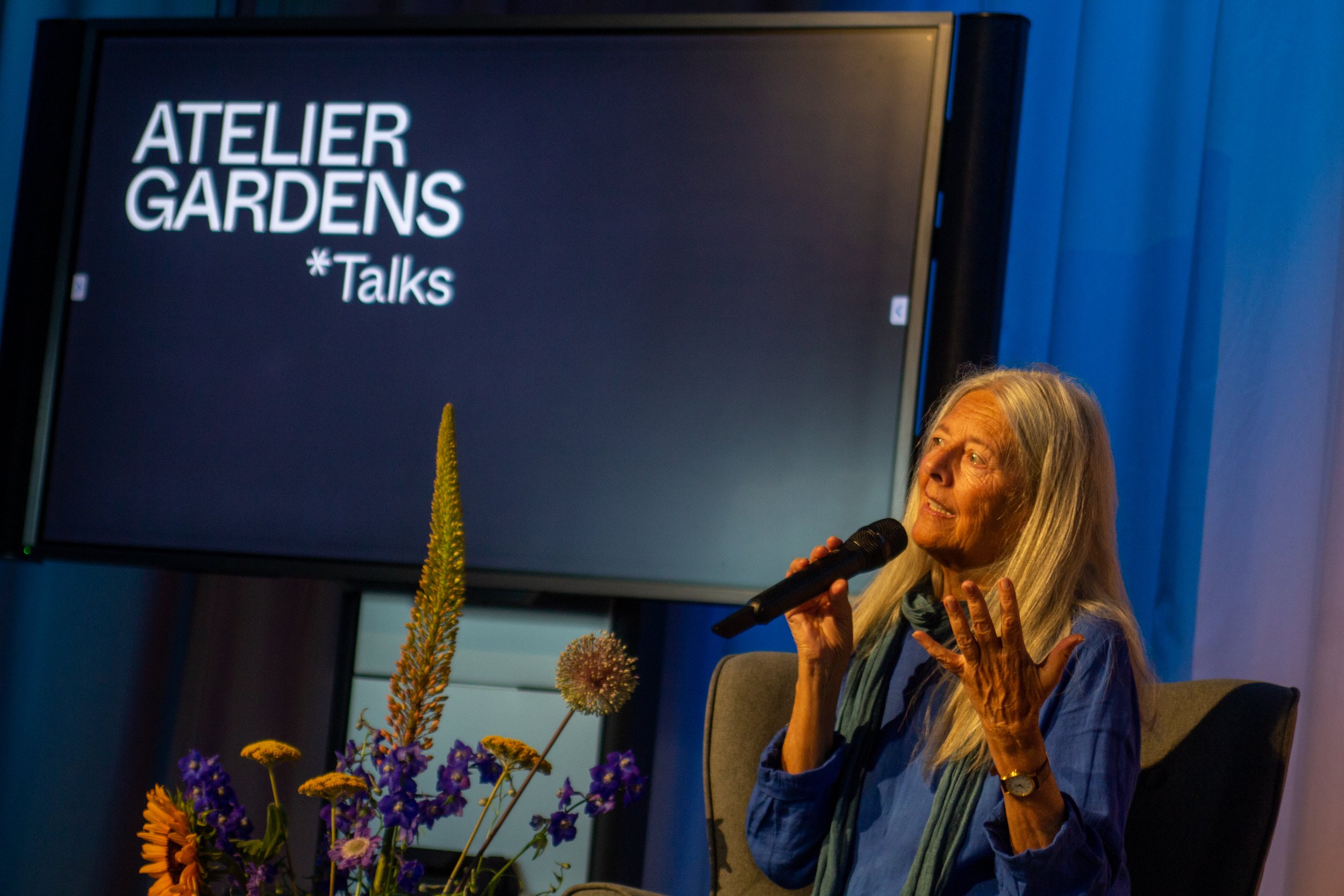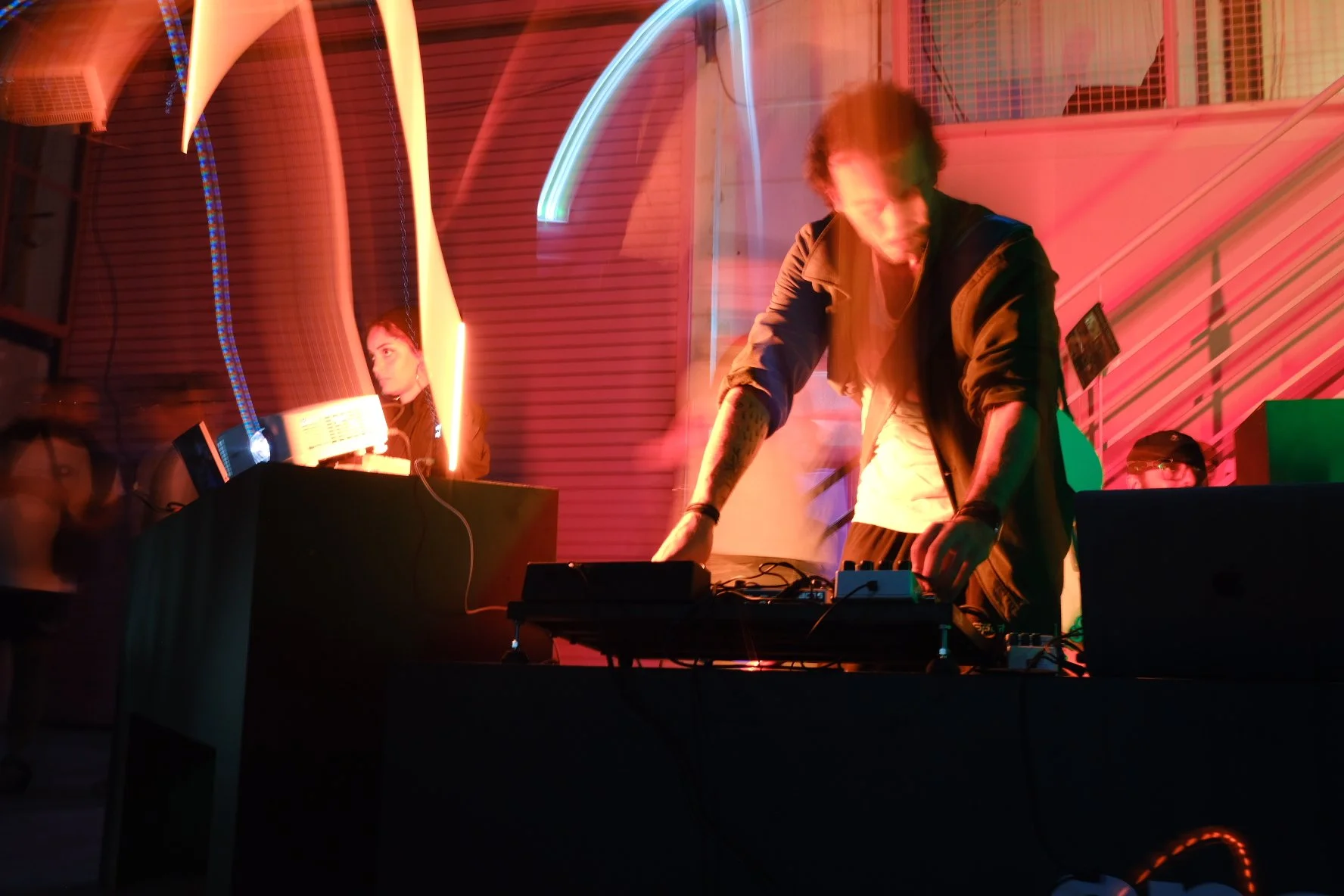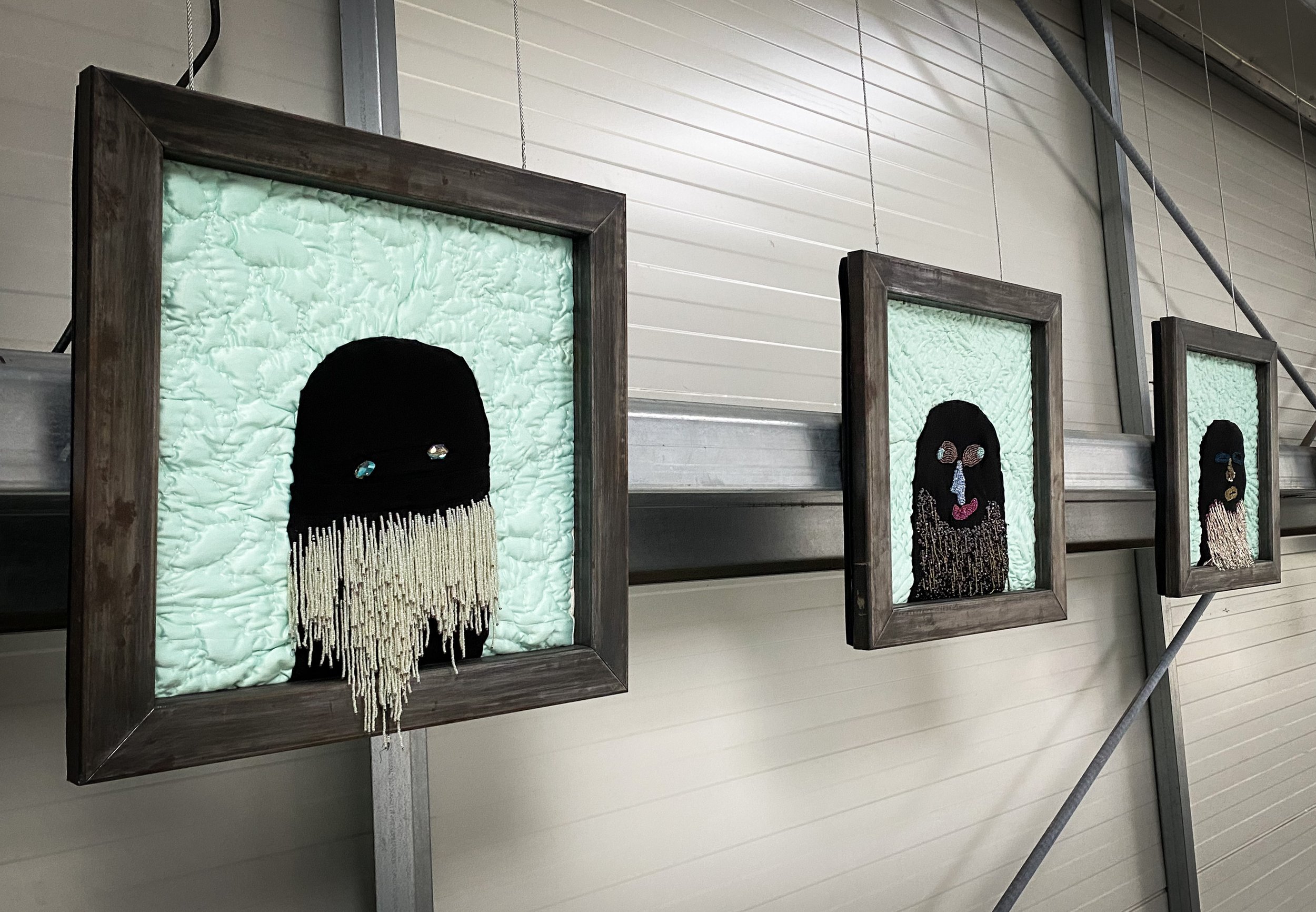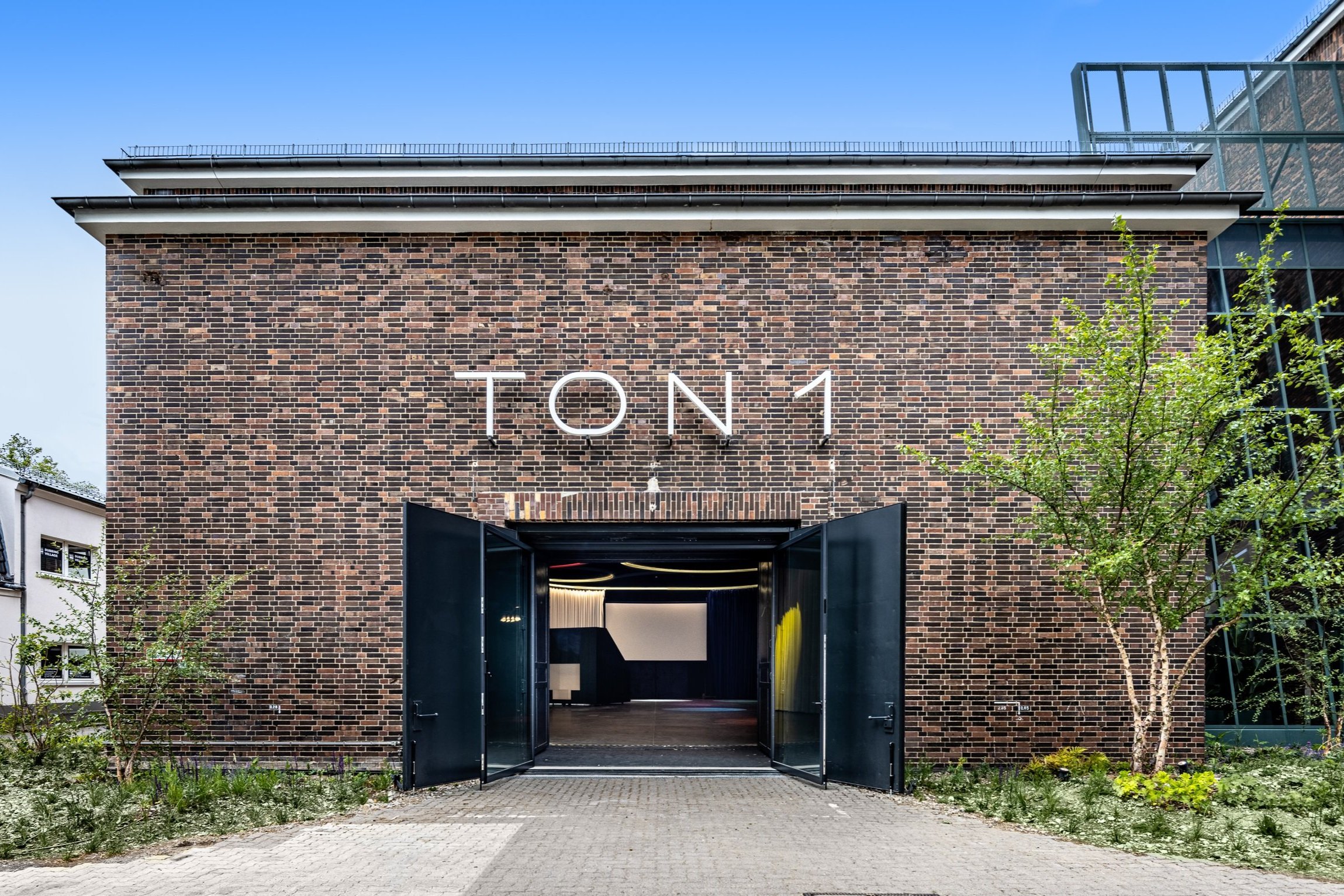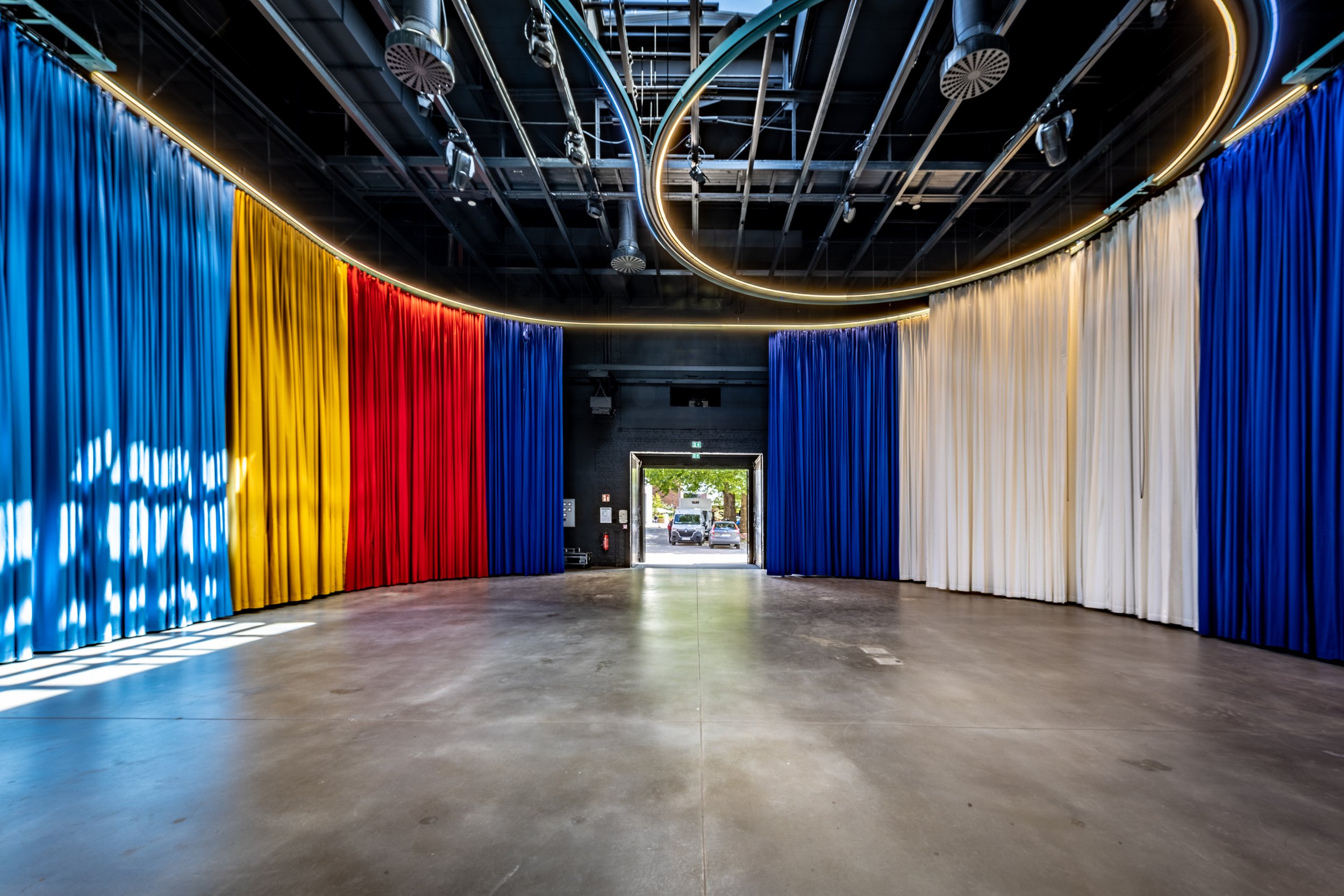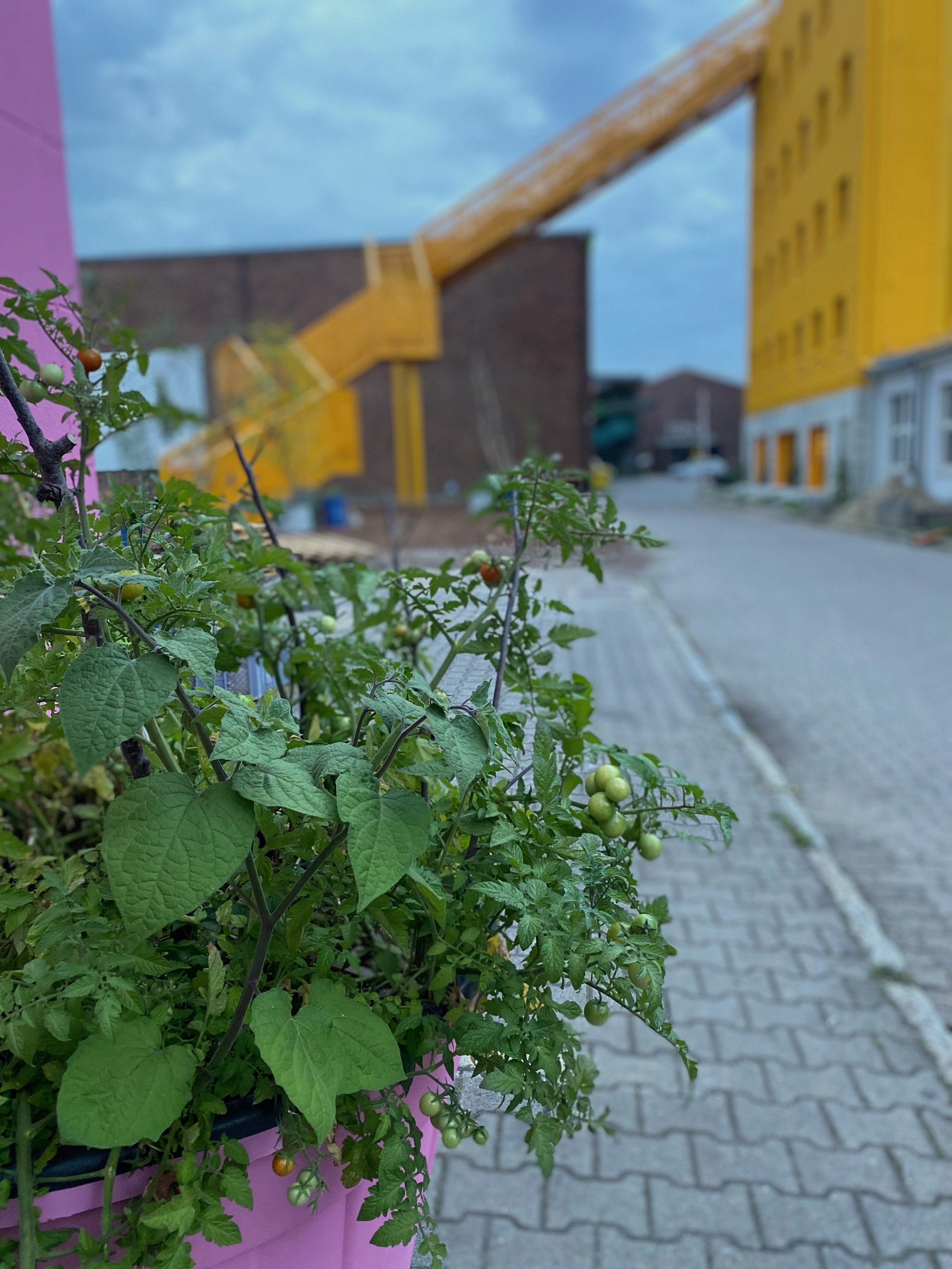A Complete Urban Transformation
Atelier Gardens: the creative campus where Berlin’s film history meets art, social activism and environmental change
Words by Silvena Ivanova
A project that takes an underused film campus with a storied past and turns it into a community hub for positive impact, attuned to the needs of the times and the city it serves...
Sounds utopic, you might think? Yet this is the goal of the recently launched Atelier Gardens — a future-forward “campus for urban regeneration” set on the grounds of the old Berliner Union Film Ateliers, locally known as BUFA.
Nestled amid the odd patchwork of industrial and residential quarters surrounding the iconic Tempelhof Airfield (now a sprawling public park), this 110 year-old cinematic site is imbued with history and reinvention. The film and television studios date back to the early 20th century, famously hosting some of the first silent movies, followed by timeless classics such as Walt Disney’s Emil and the Detectives and Bob Fossey’s Cabaret; without escaping darker historic chapters as a propaganda filming site during WWI and WWII.
Image by MVRDV
In 2016 the six-acre BUFA campus was bought by private investors whose ambitions extended beyond continuing the cinematic legacy. They set out on a mission of all-round regeneration. Fast-forward several research years, a pandemic-imposed freeze, and a gradual but relentless process of “no waste, no shortcuts” adaptive renovation, and today the project is in the exciting manifestation phase where many of the impact-driven efforts are finally becoming visible.
“The goal is for this place to be a living and ever-evolving system, so there is no finish line — continuous change is woven into the project by design.”
Regeneration over gentrification
“From an urban perspective, the goal is to revive an under-utilised industrial zone and be of real use to the neighbourhood, whether by hosting community initiatives on campus, adding facilities, or becoming a cultural centre for the people who live nearby,” Benjamin Rodrigues Kafka, community and partnerships director at Atelier Gardens tells Looms. Culturally and socially, this area is notably underserved; it's essentially a stretch of car showrooms, warehouses, and manufacturing units separating the vast airfield from the residential Tempelhof neighbourhood, with the nearest café or local hangout kilometres away.
Being the new neighbourhood hotspot could have been a sufficient raison d’être in itself, but Rodrigues Kafka (whose background is in social innovation and the nonprofit sector), sees a broader responsibility.
(1) Berlinale film screening at Atelier Gardens, image by Imagetown | (3) Benjamin Rodrigues Kafka in conversation with world-renowned activist Satish Kumar at Atelier Gardens *Talks
“We want to create a place where people working for positive social, environmental and cultural change can meet and work more effectively, surrounded by green spaces and like minds. That said, our garden is not only for humans to enjoy, it’s also for birds, bees, insects and other species. Its purpose is to enhance the relationship between the human and the non-human world and remind people that we’re not the only inhabitants of the city.”
Treading lightly, transforming slowly
Sustainability concerns have shaped the whole renovation process of Atelier Gardens, led by Dutch architecture studio MVRDV for British developer Fabrix. Old structures have been thoughtfully repurposed, instead of demolished. Building waste materials, such as steel or wood were largely reused on site.
“Our aspiration is that no waste that can be reused leaves the site,” says Rodrigues Kafka, as he proudly explains how rainwater is collected for toilet flushing, and how a pioneering sanitation system is being tested on campus that will treat and separate human waste to create fertiliser for the soil. In addition to waste reduction, measures are in place for bringing nature back to the site, such as conscious landscaping that will increase biodiversity and regenerate the soil. “The soil beneath the campus was contaminated from the many years under the concrete. Instead of removing it and importing better soil, which would’ve been the quick solution, we opted for planting resilient species that can grow in this soil and heal it over time.”
Realising such a holistic vision has been, predictably, a slow endeavour. “The renovation has been a gradual three-year process to date, and continuing,” Rodrigues Kafka notes. “But 2023 is a milestone year for the project: the main structures are now largely finished, and gardens are being planted. It will take at least another year or two to complete the initial growth phase. Yet, the goal is for this place to be a living and ever-evolving system, so there is no finish line — continuous change is woven into the project by design.”
Benjamin Rodrigues Kafka and Ayham Majid Agha inside one of the campus’ freshly redesigned spaces, image by Stefan Korte
The state of play today
Four studios were modernised to remain in use as film and TV sets, or be rented out for events and exhibitions. Dotted around them are workshop spaces and craft ateliers in various shapes, sizes and stages of renovation. Several office buildings were repurposed into co-working spaces for social entrepreneurs and NGOs (permanent residents now range from climate A-lister Extinction Rebellion to an agro-tech project called Tiny Farms, and Kaospilot+, an alternative school for aspiring change-makers). The campus’ zero-waste canteen is buzzing with life at midday (remember, dining options in the area are scarce, so the fresh and seasonal eatery is a welcome gem). It is run by the circular food company Root Radicals and supplied by a micro-farm situated 48 km away.
At the very heart of the campus, painted in bright pink glows the *ArtsLab — a former industrial hangar converted into a versatile cultural space for experimental art, talks, film screenings and live acts.
The entire setting feels refreshing and almost surreal in its progressiveness, like a glimpse from a Stewart Brand-esque future, with bright-eyed flocks of new campus dwellers, including artists, tech entrepreneurs, activists, soil experts and beekeepers, working alongside the usual film crews and shifting production sets. What is the glue that brings them all together?
“There’s a strong identity forming around our motto ‘Celebrating Soil Soul Society’,” a phrase coined by world-renowned activist Satish Kumar, who advised for the project, Rodrigues Kafka explains, citing food production, human rights, and urban development as the overarching issues that bind the campus and define its community. “That phrase has shaped our approach to sustainability."
More pragmatically, he adds: “Part of the incentive is that we’ve got space, we can accommodate a wide range of needs and budgets, and we are open to co-creation. The sense of possibility that comes with this still-evolving space has inspired some incredible people to contribute their ideas.”
Art and pigeons at the heart of change
Artistic Director Ayham Majid Agha, image by Alaa Hassan
One of these people is Atelier Garden’s charismatic artistic director, Ayham Majid Agha. An award-winning theatre maker, actor, curator and pigeon breeder, Majid Agha was born in Syria and graduated from the Academy of Performing Arts in Damascus, where he served as an associate professor until 2012 when he was forced to leave his country. After turbulent years of working and living between Lebanon, Egypt, France, Italy and Germany, serendipity brought him to Berlin. Before Atelier Gardens, he made his mark at the Maxim Gorki Theatre, where he wrote, directed and acted in several acclaimed performances and co-founded a collective called “Exil Ensemble” for professional performers forced to live in exile. Throughout his theatre work, Majid Agha consistently explored themes of conflict, detachment, ethnicity and identity — themes that continue to resonate in his artistic curation for Ateliers Gardens today.
What he claims brought him to the project however, were his pigeons. In the emerging creative campus he found the support and open-mindedness to merge his lifelong passions and launch The Pigeon Theatre — an art project bridging animal welfare, art and social impact. “People often have so much prejudice against these birds,” he says, “but they are just lacking the knowledge to appreciate their beauty and learn how to peacefully coexist in the city.”
The campus gardens are envisioned as an inclusive space open to the community and non-human residents alike, image by Studio Renner
In this spirit, Majid Agha brought to the campus garden an old sailing boat converted into a safe home for pigeons. The birds themselves are not the attraction “because this isn’t a zoo”, he warrants, but serve as symbolic inspiration for a forthcoming programme of artistic interventions, children’s workshops and learning experiences for people of all backgrounds. “I want people to come for the art, and in passing, maybe learn something about pigeons,” he shares. “It is essential that people know how to make space for birds and other species in the city.”
This was the initial spark for the *ArtsLab at Atelier Gardens, which today is Majid Agha’s main focus. “We host a series of residencies and events where we give artists the permission and support to experiment onsite, and the space to do so. It’s the process that interests us, the course of creation over the finished artwork.”
One of the historic film studios, Ton 1, now fully renovated and equipped to host contemporary productions and events, image by Imagetown
A complex puzzle
Fitting an art programme into Atelier Gardens’ development has been a challenge, and like the project itself, is still in transition. “It could take three or even five years for a first meaningful structure or ‘grammar’ of this place to emerge,” Majid Agha admits. “It’s not easy to integrate the demands and budgets of an art calendar into a private business structure that is not a museum nor an art institution, yet has to comply with a lot of regulations, business interests, and a sustainable agenda. It takes time and a lot of learning to develop things in a sensitive and proper way.”
Time-generosity and a gentle, probing approach emerge as the secret recipe of this gargantuan regeneration project with its many (literal and conceptual) building sites. What makes it truly promising and attractive to the creative minds whose daily job it is to enact the complex vision, is a general mindset of trust, exploration and organic growth. As the artistic director puts it: “The only unique fingerprints for human creativity are mistakes. That’s what distinguishes us from AI and is the beauty of organic life.”



